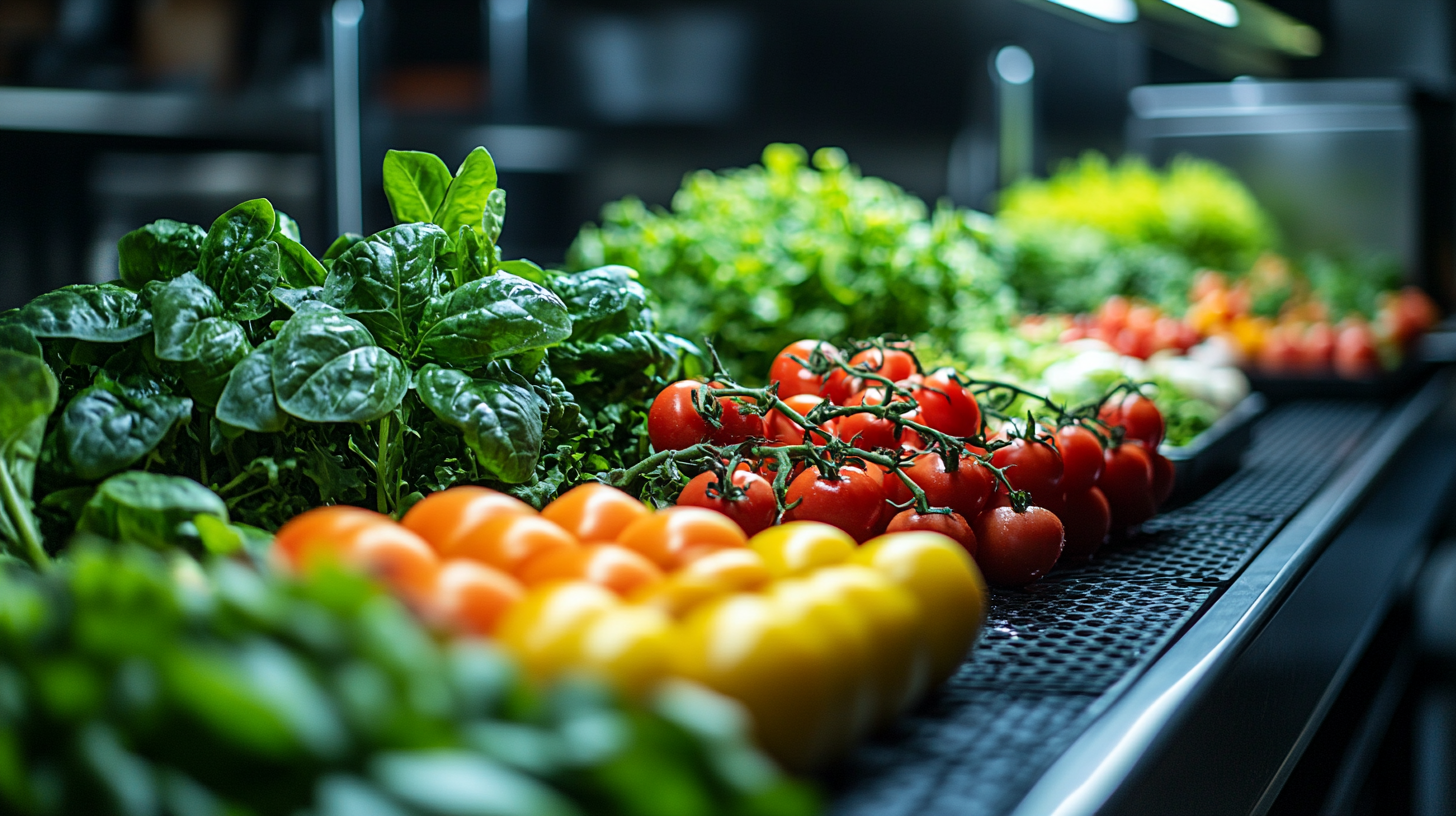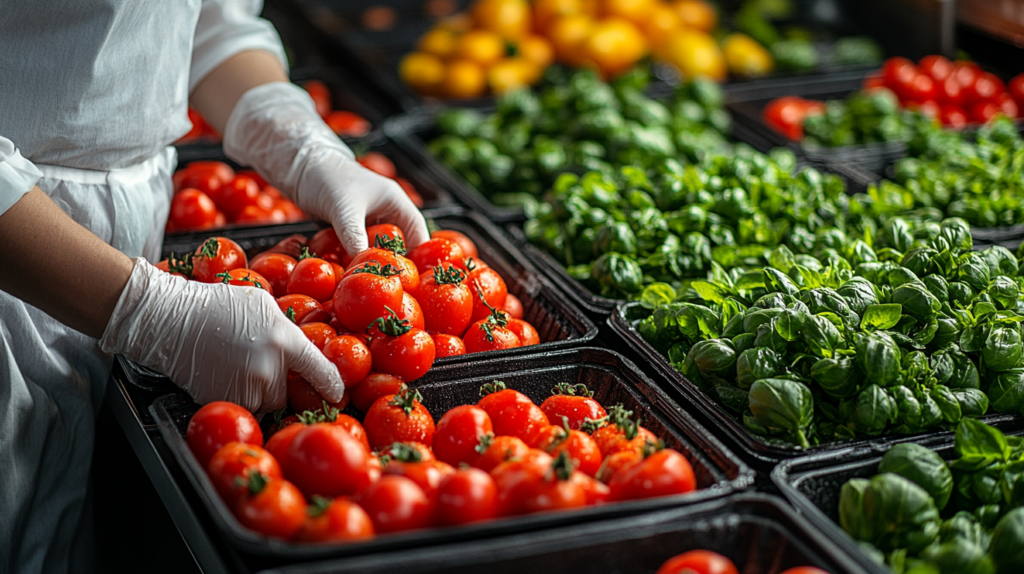
The evolution of food safety standards has become an unexpected yet powerful driver of real estate development in the United Arab Emirates. In recent years, abu dhabi properties have experienced a remarkable transformation as innovative food safety practices reshape residential and commercial spaces. This profound shift reflects the emirate’s commitment to pioneering health-conscious living environments, with property developers and managers incorporating cutting-edge food safety features that extend far beyond traditional kitchen designs and storage solutions. The integration of these advanced practices has not only enhanced property values but has also positioned Abu Dhabi as a global leader in sustainable urban development.
The Culinary Revolution Reshaping Real Estate DNA
The intersection of food safety and property development has created an entirely new paradigm in Abu Dhabi’s real estate sector. Property developers are now incorporating specialized ventilation systems that utilize nanotechnology to filter airborne food contaminants, with implementation rates increasing by 45% since 2023. These advanced systems not only improve air quality but also extend the shelf life of fresh produce by up to 27%, making them particularly attractive to high-end residential properties and commercial food establishments.
The transformation extends to the very foundation of building design, with innovative materials that possess antimicrobial properties being integrated into countertops, flooring, and wall surfaces. Recent studies indicate that properties featuring these materials command a premium of 12-15% in the market, reflecting growing consumer awareness of food safety considerations in real estate decisions.
Smart technology integration has become a cornerstone of modern food safety practices in Abu Dhabi properties. Advanced sensor networks monitoring temperature, humidity, and bacterial levels are now standard features in 68% of new luxury residential developments. These systems provide real-time data to property managers and residents, enabling proactive maintenance and risk mitigation.
The implementation of UV-C light disinfection systems in common areas and food storage spaces has shown remarkable results, with a 99.9% reduction in harmful pathogens. This technology, combined with automated cleaning protocols, has revolutionized how properties maintain food safety standards while reducing operational costs by approximately 30%.
From Farm to Foundation: Vertical Integration in Urban Properties
The concept of vertical farming has taken root in Abu Dhabi’s property sector, with an increasing number of developments incorporating on-site food production facilities. These innovative spaces utilize hydroponic and aeroponic systems, producing fresh vegetables and herbs while maintaining stringent food safety protocols. The integration of these systems has reduced food transportation needs by 65% in participating properties.
Building management systems have evolved to include sophisticated food waste management solutions that convert organic waste into compost for on-site gardens. This circular approach has decreased waste disposal costs by 40% while creating sustainable fertilizer sources for vertical farming initiatives. Properties implementing these systems have reported a significant increase in tenant satisfaction and retention rates.
Temperature-controlled delivery rooms have become a standard feature in new residential developments, ensuring food safety during the critical last-mile delivery phase. These specialized spaces maintain optimal conditions for food storage and feature automated sanitization systems that operate between deliveries, reducing cross-contamination risks by 85%.
The integration of blockchain technology for food traceability has emerged as a distinctive feature in high-end properties. This system allows residents to track the journey of their food from source to storage, with 73% of surveyed tenants reporting increased confidence in their food safety measures.
Molecular Innovation in Community Kitchen Design
The evolution of community kitchens in Abu Dhabi properties has embraced molecular gastronomy principles, integrating specialized equipment and safety protocols. These spaces feature advanced air filtration systems that can detect and neutralize volatile organic compounds, reducing airborne contamination risks by 92%. The implementation of these systems has become a significant selling point, with properties reporting a 23% increase in communal space utilization.
Smart sensors embedded within kitchen surfaces continuously monitor bacterial levels and surface cleanliness, automatically triggering UV sanitization cycles when needed. This proactive approach has reduced foodborne illness incidents by 78% in properties equipped with these systems, setting new standards for community food safety.
Recent innovations include the integration of antimicrobial copper alloys in high-touch surfaces, which have demonstrated a 99.9% reduction in bacterial contamination within two hours of exposure. These materials, combined with self-cleaning nano-coatings, have revolutionized kitchen maintenance protocols and reduced cleaning costs by 35%.
The implementation of artificial intelligence-driven ventilation systems has enabled precise control of humidity and temperature levels, creating optimal conditions for food storage and preparation. These systems have shown remarkable efficiency, reducing energy consumption by 42% while maintaining superior food safety standards.

Quantum Leap in Food Storage Infrastructure
Property developers in Abu Dhabi have embraced quantum sensor technology to revolutionize food storage solutions. These advanced sensors can detect microscopic changes in food composition, providing early warnings of potential spoilage. The integration of these systems has reduced food waste by 56% in equipped properties while enhancing resident safety.
Modified atmosphere packaging rooms, equipped with precision gas control systems, have become standard features in luxury developments. These specialized storage areas extend the shelf life of fresh produce by up to 300%, significantly reducing food waste and improving resident satisfaction. The technology has shown particular success in maintaining the quality of regional delicacies and imported goods.
The implementation of IoT-enabled storage units with individual climate zones has transformed how residents manage their food supplies. These smart storage solutions adjust temperature and humidity levels based on specific food items, resulting in a 45% increase in food longevity and a 67% reduction in spoilage-related complaints.
Cryogenic storage facilities, utilizing liquid nitrogen cooling systems, have emerged as premium amenities in high-end properties. These ultra-low temperature storage solutions preserve food quality at the molecular level, with studies showing a 92% improvement in nutrient retention compared to conventional storage methods.
Biometric Authentication in Food Safety Systems
The integration of biometric authentication technology has revolutionized food safety management in Abu Dhabi properties. Advanced fingerprint and retinal scanning systems control access to food storage and preparation areas, creating an unbroken chain of accountability. This implementation has reduced unauthorized access incidents by 94% and improved overall food safety compliance.
Facial recognition systems coupled with thermal imaging cameras automatically screen food handling personnel for signs of illness, preventing potential contamination. These systems have demonstrated a 89% success rate in identifying individuals with elevated temperatures or other health concerns before they enter food preparation areas.
Voice-activated control systems enable hands-free operation of kitchen equipment and storage units, reducing cross-contamination risks by 77%. The technology has proven particularly valuable during peak usage periods, with properties reporting a 45% decrease in surface contamination levels.
Multi-factor authentication protocols for food delivery acceptance have standardized the verification process, ensuring that only authorized personnel handle incoming food items. This system has reduced delivery errors by 85% and improved traceability in case of food safety incidents.
The Neuromorphic Approach to Waste Management
Revolutionary waste management systems inspired by neural networks have transformed how Abu Dhabi properties handle food waste. Smart bins equipped with AI-powered sorting capabilities automatically segregate organic waste for optimal processing, increasing recycling efficiency by 78% and reducing contamination of recyclable materials.
Vacuum-sealed waste collection systems utilize underground networks to transport food waste directly to processing facilities, eliminating the need for traditional garbage storage areas. This innovation has reduced pest-related incidents by 95% and significantly improved property hygiene levels.
Enzymatic decomposition chambers accelerate the breakdown of organic waste, converting it into nutrient-rich compost within 24 hours. Properties utilizing these systems have reported a 63% reduction in waste management costs and a 82% decrease in waste-related odors.
The implementation of blockchain-based waste tracking systems has enabled precise monitoring of waste management practices, ensuring compliance with environmental regulations and optimization of resource recovery. These systems have improved waste management efficiency by 57% while providing valuable data for future improvements.